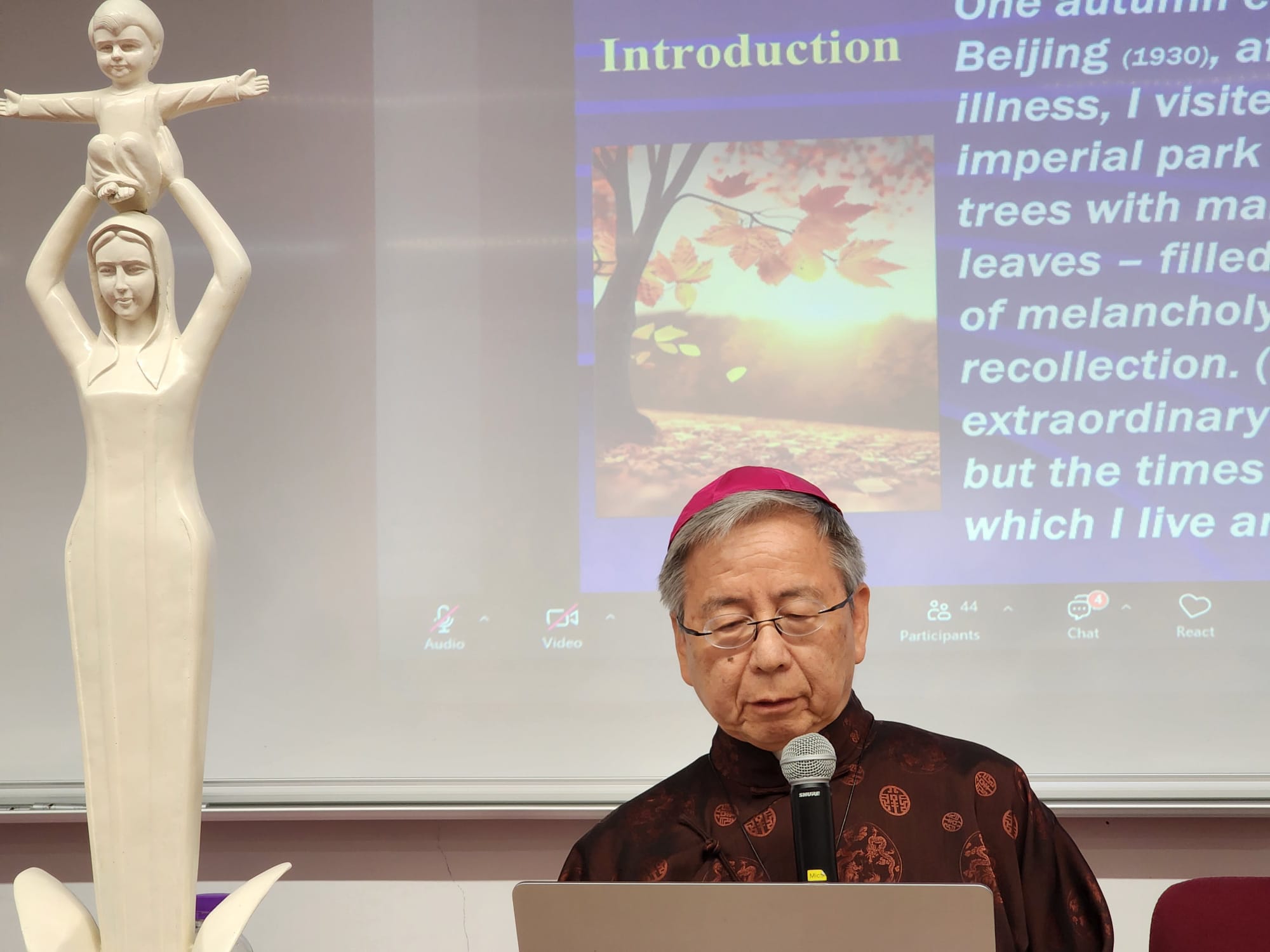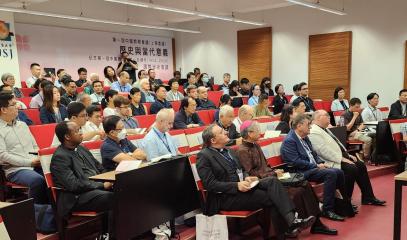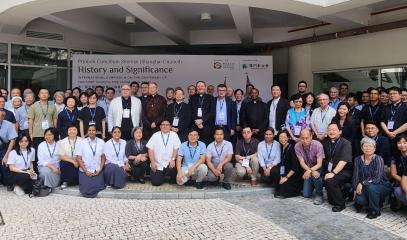In Macau Chinese Catholics reflect on the legacy of the Shanghai Council
A hundred scholars from “greater China" met at the University of Saint Joseph to share thoughts from an ecclesial perspective. Archbishop Savio Hon praised the encounter with the local culture, which owes a lot to the work of Card Celso Costantini a century ago. Prof Wang Meixiu expressed concerns over today's restrictions on the access of children and minors to places of worship. She wonders whether the “number of Catholics is decreasing”.
Macau (AsiaNews) – The international symposium on the history and significance of the Shanghai Council of 1924 opened this morning in Macau, a significant meeting marking the centennial of this important event in the history of the Church in China.
After recent conferences held in Rome and Milan, the chosen venue was a Chinese Catholic establishment, the University of Saint Joseph, in Macau, which operated for centuries as a crucial hub for the missionary movement.
Almost a hundred people are attending the conference, which will continue until Saturday, mostly Chinese scholars, almost all Catholics, who come from "greater China," that is, from the People's Republic, Taiwan, Hong Kong, as well as Macau.
The few non-Chinese present are all veteran missionaries-cum-scholars, who have dedicated their lives to China. Two diplomatic officials from the Holy See based in Hong Kong are also in attendance.
This symposium in Macau is eminently academic in approach, with comprehensive reports that focus on specific aspects of the history of the Council of Shanghai and the Church’s journey in subsequent years in China. Its profile is essentially ecclesial and missionary.
The meeting began this morning with two video messages, one from Card Luis Antonio Tagle, Pro-Prefect of the Dicastery for Evangelisation, and the other from Card John Tong, bishop emeritus of Hong Kong, accompanied by greetings from Bishop Stephen Lee Bun Sang of Macau.
Archbishop Savio Hon Tai Fai spoke next. The prelate, who is the current apostolic nuncio to Malta, hails from Hong Kong and served as secretary of the Congregation for the Evangelisation of Peoples. In his address, he looked at the example offered to the Church in China by Archbishop Celso Costantini (1876-1958), who was for a time apostolic delegate to the country, on how to "learn to listen to the local culture".
Quoting from the cardinal’s memoirs, starting with the motto “May China be for the Chinese and the Chinese for Christ”, Archbishop Hon gave an overview of the prophetic intuitions of the Vatican diplomat, starting with his desire to heal wounds.
He noted how as early as 1923 he urged no more compensations via the colonial powers for the blood of missionaries killed by militias and bandits.
“Facing the threats of attack,” said the archbishop, “the Missions needed not the Protectorate, but prudence, trust in God, and even readiness to face eventual shepherds’ death for the sheep.”
Hon also noted that the priority Costantini gave to the Chinese Council was “the two-fold purpose of every Mission: spreading the Gospel and establishing the Church administered by the local clergy,” adding that “the method of sowing seeds was preferred to that of transplanting trees from Europe.”
Likewise, the Italian prelate urged foreign missionaries to “seriously learn and appreciate [the] local language and culture", to promote the native clergy through training, office, and dignity, with openness to Chinese architecture, local music, arts, and even Chinese clothing for the clergy.
Fr Gianni Criveller, a PIME missionary and AsiaNews editorial director, also spoke at the meeting. He compared the figure of Card Costantini to that of the Blessed Paolo Manna and his courageous Observations on the Modern Method of Evangelisation, which he wrote in 1929 precisely with China in mind. Thus, even in colonial times, some missionary voices understood well that "the Gospel is synonymous with freedom”.
At the Symposium, Fr Criveller also raised the question of a second Chinese Council today. “One issue might be about inter-culturality,” he said. “[T]here is little creative blending among today’s Chinese cultures, the manifestations of the faith and the liturgy. There is a need for theological and pastoral reflections leading to facilitating faithful to express their faith in a way congenial with their daily lives.”
On the present situation of the Catholic Church in China, Prof Wang Meixiu, professor emeritus at the Institute of World Religions of the Academy of Social Sciences in Beijing, expressed concerns in the afternoon session.
“In recent years, due to a number of regulations and laws, multiple levels of regulations require that children and adolescents under the age of 18 years old not be allowed to take partin catechesis,” or “enter places of worship,” she explained.
These restrictions especially affect the life of the Catholic Church. In fact, “the number of people who can come into churches has shrunk compared to before,” she added.
“I remember that in the 80s and 90s of the last century, some people used the term ‘religious fever’ to describe the phenomenon of increasing the number of Christians, and some even said that the growth of the number of people at that time tended to be exaggerated.
“In recent years, due to the lack of statistics, due to the decline in the number of elderly believers, due to the impact of the epidemic, and the continuous decline in the number of new babies, the opportunities for children and young people to receive the faith have diminished a lot. Is it correct to estimate that the number of Catholics is decreasing? That's a real problem!
“In recent years, new terms have been frequently invented in the field of mainland economics, such as reducing development, reducing inventory, and so on. Could these new terms be used to describe [the] increase or decrease of the Catholics in China? Thinking about the Shanghai Council a hundred years ago, it is certain that this is not a phenomenon that the participant fathers wanted to see.”









.png)










